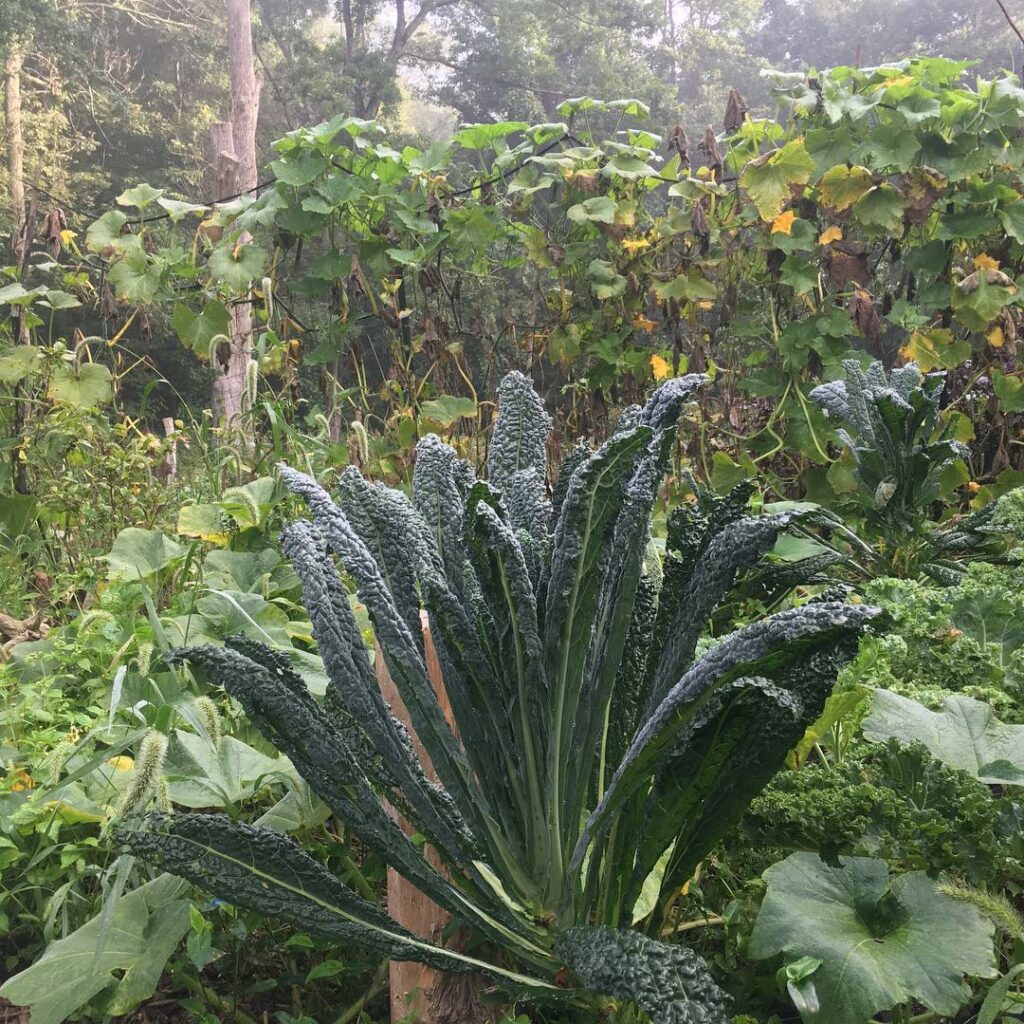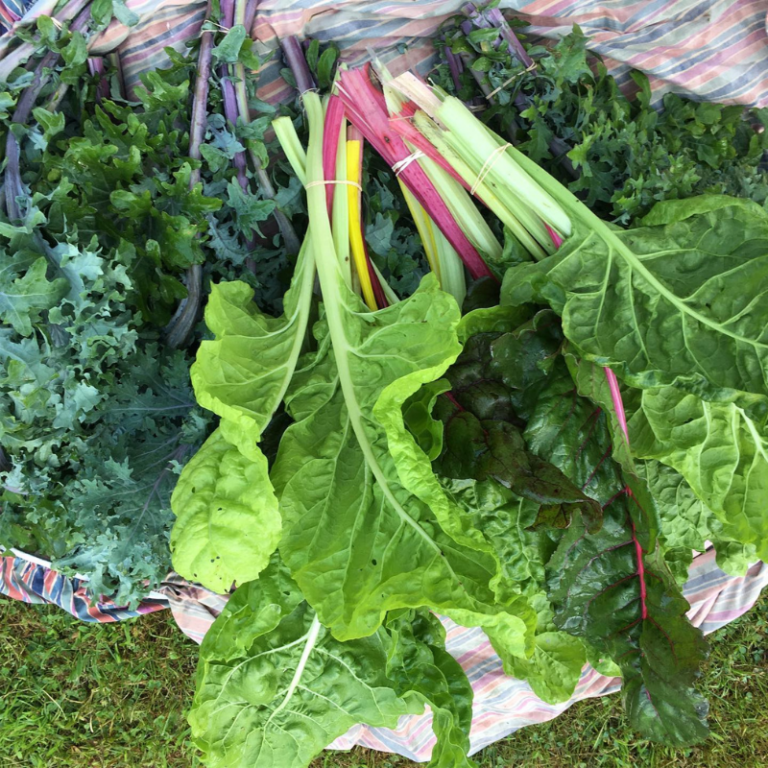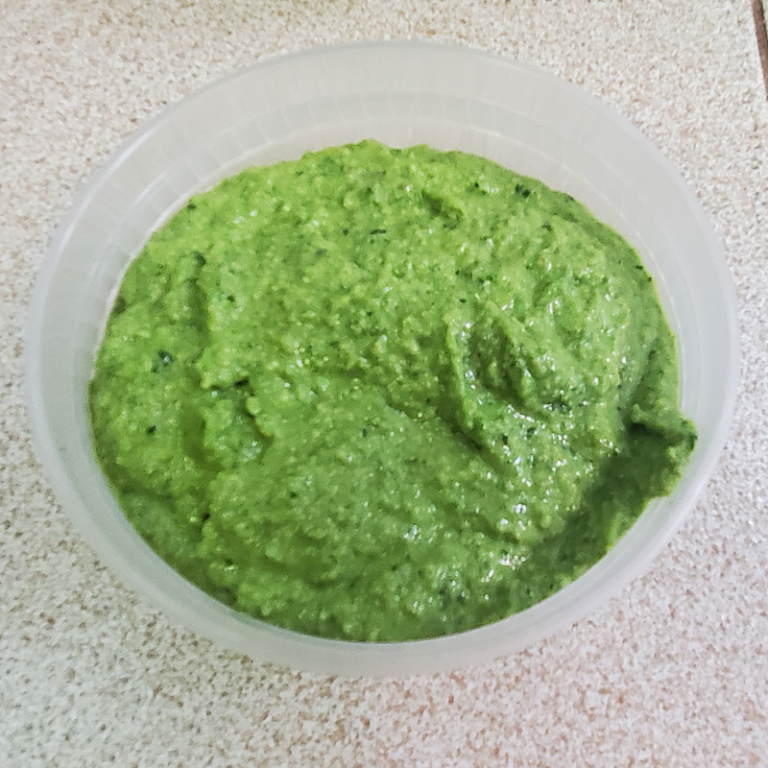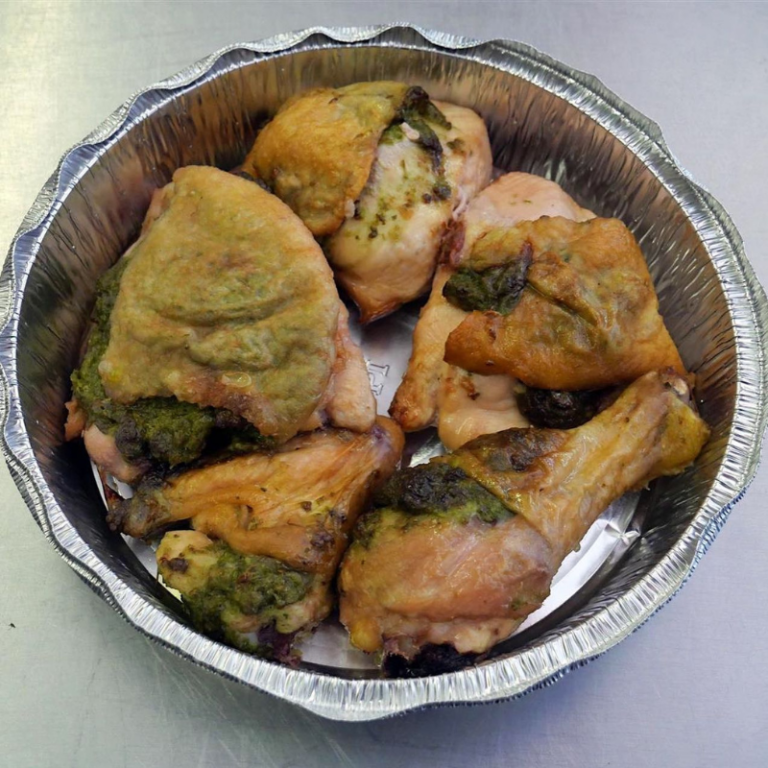The Abundance of Rich Robins’ Pantry Garden
An Earth Day Volunteer Spotlight
Growing Nutrient-Dense Food for Others While Healing the Planet!
Please join us in saying a BIG thank you to Rich and Diane Robbins! These dedicated volunteers are an inspiration this Earth Day as they work to grow food for others and heal the planet with thoughtful composting and soil management. Rich and Diane started volunteering and giving back to the community through growing food 17 years ago! We’re so lucky to have found them in 2018 and created a fulfilling partnership. Rich grows the most nutrient-dense food, Second Chance Foods harvests and transports it where it needs to go, cooks some into delicious and healthy meals, and together, more of our community is fed. Rich also takes compostable food scraps from the kitchen and uses the compost to nourish the soil of the garden – absolutely a full circle of elevating the health of people and the environment!

Starting the now “Pantry Garden”
After retiring from teaching, Rich and Diane decided that volunteering would be how they continued to help others. Initially, they provided some tomatoes from their garden to the Salvation Army, which made sauce for meals there. Soon after, Rich and Diane started cooking for the CAP soup kitchen in Brewster. They immediately noticed that most of the food was not as fresh as they liked and wanted to supply some nutrient-rich veggies to improve the meals and recipients diets. So, Rich took action and planted a row in their garden specifically to donate garden veggies! The staff loved having fresh options to give out, and Rich and Diane loved gardening, so it became the perfect way to give back to the community – they had found their volunteer niche. Years later, their connection to Putnam CAP was also how Second Chance Foods found such a like-minded neighbor dedicated to nourishing others.
"Volunteering has been a wonderful experience. After teaching, I felt that I needed to continue helping others, which has enriched our lives. One of the best parts is meeting like-minded people, and we have met some wonderful co-workers. We have enjoyed meeting and conversing with the clients who eat at the food kitchen, and we consider some of them to be good friends." -Rich Robbins
Working Together with Second Chance Foods
Over the years, the pantry garden expanded and was starting to overwhelm Rich with all the work involved. But, we are so grateful that, in 2018, Rich met Martha, our Executive Director, who had the perfect solution – partner with Second Chance Foods, and our volunteers would help put all his delicious produce to good use – while still serving Putnam CAP, the Salvation Army, and many more of our Hunger Relief Partnerships. Martha even coined the term “Pantry Garden,” working together has allowed Rich more time to grow more food, and more food has been able to reach the community in need.
"Our goal is to grow the most organic, mineral-filled veggies." - Rich Robbins












Gardening for the last 50 years means much information has changed since Rich started. “Almost everything I have learned about growing in the past 50 yrs is no longer valid. I have been studying soil and the soil biome and no-til for three years. The results of feeding the soil and not the plants are dramatically different than using fertilizers. And tilling is more destructive of the soil biome.” Rich has been able to put these concepts into practice in his garden and has been working to remineralize the soil. Minerals can disappear in soil due to building, excavation, topsoil abuse, and more. “Minerals are what feeds the microbes which are connected to the health of the plant and the amount of nutrition the plant will provide.” Though we may disagree, Rich says the Pantry Garden isn’t very large. So, to produce the most produce possible, he focuses on growing crops that continue to produce throughout harvesting, like Kale, Swiss Chard, Squash, and Tomatoes. This year, he’s adding Celery, Carrots, and Lettuce—we can’t wait! We pass on as much of the organic produce fresh as possible so our food recipient can benefit from their incredible taste in season. But, our meals also transform less traditional crops like garlic scapes into delicious pesto.
Though Second Chance Foods helps harvest and transport the amazing produce from the Pantry Garden, Rich does all the gardening and everything else it takes to keep the garden growing. We cannot thank him and Diane enough for all the time, energy, resources, passion, and hard work they put into growing food for our community.
A Full Circle of Services
Not only does Rich grow incredible vegetables for Second Chance Foods to cook into meals or connect fresh with our Hunger Relief Partners – but he composts the unusable scraps or rescued groceries we receive as well! We might be biased, but we think he has the *best* compost around. If you’re looking to get started with composting, take a lesson from Rich – “To understand….just walk into a forest….note that everything grows….look at the ground and you will see compost. All of the organic materials fall to the ground, decompose and feed the plants.”
“Composting is important on many levels.” While reflecting on the importance of composting, Rich shared that it’s beneficial to the Earth because the organic matter can decompose properly instead of contributing to releasing methane when trapped in a landfill. As a gardener, Rich also knows that composting will benefit the soil! “consider that when you grow a garden, the plants you grow will use lots of the nutrition in the soil. The level of nutrients needs to be maintained to keep the garden producing wholesome food for you to eat. You will be in control of what goes into your soil…so if you are organic, so will be your compost which will feed the garden.”
To get started, Rich recommends selecting the correct bin or compost technique for your space. There are convenient composters that turn easily and keep oxygen circulating, which helps speed up the process of turning waste into usable food for your plants. Rich also suggests looking at a double-bay compost pile; some people use free pallets to further their recycling efforts. The Cornell Cooperative Extension has a complete guide for bin selection to make composting easy no matter where you live.
Riches’ final advice for beginner composters is simple: “Don’t use chemical fertilizer or you won’t get much benefit from the compost.” Interested in more information? Read all about getting started our 2022 article all about composting at home!
